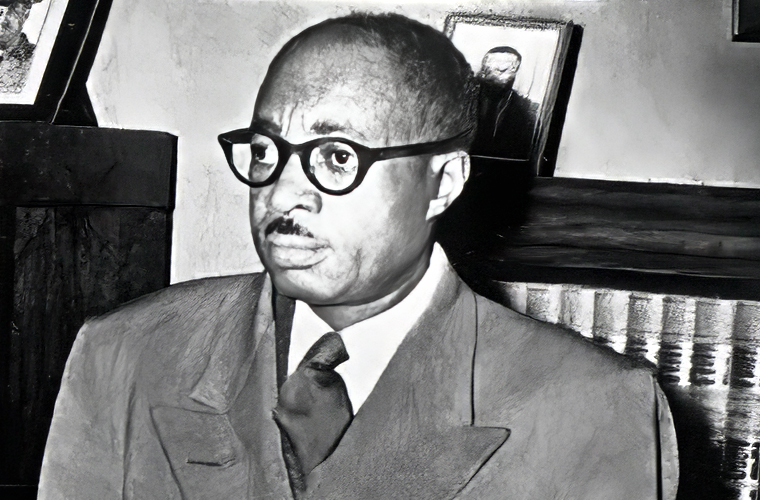Elisha J. Scott, born in 1890 and passed away in 1963, was a prominent figure in the fight for civil rights and equality in the United States. Raised in Topeka Tennessee town, Scott’s upbringing and early experiences shaped his strong drive and quick wit, which would propel him to become a formidable force in the legal arena. During his youth, Scott’s remarkable qualities caught the attention of the influential Topeka minister, Charles M. Sheldon. Recognizing Scott’s potential, Sheldon provided him with financial support, enabling Scott to pursue higher education. With unwavering determination and his innate abilities, Scott earned his law degree from Washburn College in 1916, marking the beginning of a long and impactful career dedicated to advocating for justice and equality.
As an attorney, Elisha J. Scott dedicated himself to fighting for civil rights and challenging school segregation across Kansas and the Midwest. His legal acumen and unwavering commitment to justice made him a formidable advocate for those facing discrimination and inequality. Throughout his career, Scott fearlessly argued numerous cases that sought to dismantle systemic racism and promote equal treatment under the law.
One of Scott’s most notable contributions to the fight for civil rights was his involvement in landmark school segregation cases. At a time when racial segregation in education was pervasive, Scott fearlessly took on legal battles to challenge discriminatory practices and advocate for equal access to education for all students. His strategic legal arguments and unwavering dedication played a pivotal role in advancing the cause of desegregation and paving the way for future progress in educational equality.
In addition to his work in school segregation cases, Elisha J. Scott was a vocal advocate for broader civil rights issues affecting marginalized communities. He used his legal expertise to challenge discriminatory practices in housing, employment, and public accommodations, seeking to dismantle barriers that perpetuated inequality and injustice. Scott’s tireless efforts in the courtroom contributed to significant legal victories that expanded civil rights protections and laid the groundwork for greater equality under the law.
Beyond his legal advocacy, Elisha J. Scott was also deeply engaged in community activism and leadership. He recognized the importance of grassroots mobilization and community empowerment in effecting lasting social change. Scott actively supported initiatives aimed at empowering marginalized communities, promoting voter enfranchisement, and fostering greater civic engagement. His leadership and dedication to community organizing left a lasting impact on the broader struggle for civil rights and social justice.
Throughout his lifetime, Elisha J. Scott remained steadfast in his commitment to advancing civil rights and equality. His legacy continues to inspire future generations of activists, attorneys, and advocates who carry on the fight for justice. Scott’s pioneering work in the legal arena, coupled with his unwavering dedication to challenging systemic injustice, has left an indelible mark on the ongoing pursuit of civil rights and equality in the United States.
In recognition of his profound contributions to the advancement of civil rights, Elisha J. Scott’s legacy serves as a testament to the power of perseverance, courage, and unwavering commitment to justice. His impact reverberates through the annals of history, reminding us of the enduring importance of upholding civil rights and equality for all.
As we reflect on Elisha J. Scott’s remarkable legacy, we are reminded of the profound impact that individuals can have in shaping a more just and equitable society. His life’s work stands as a testament to the enduring power of advocacy, resilience, and unwavering dedication to the pursuit of justice. Elisha J. Scott’s contributions continue to inspire and guide us as we strive toward a future where equality and justice prevail for all.

